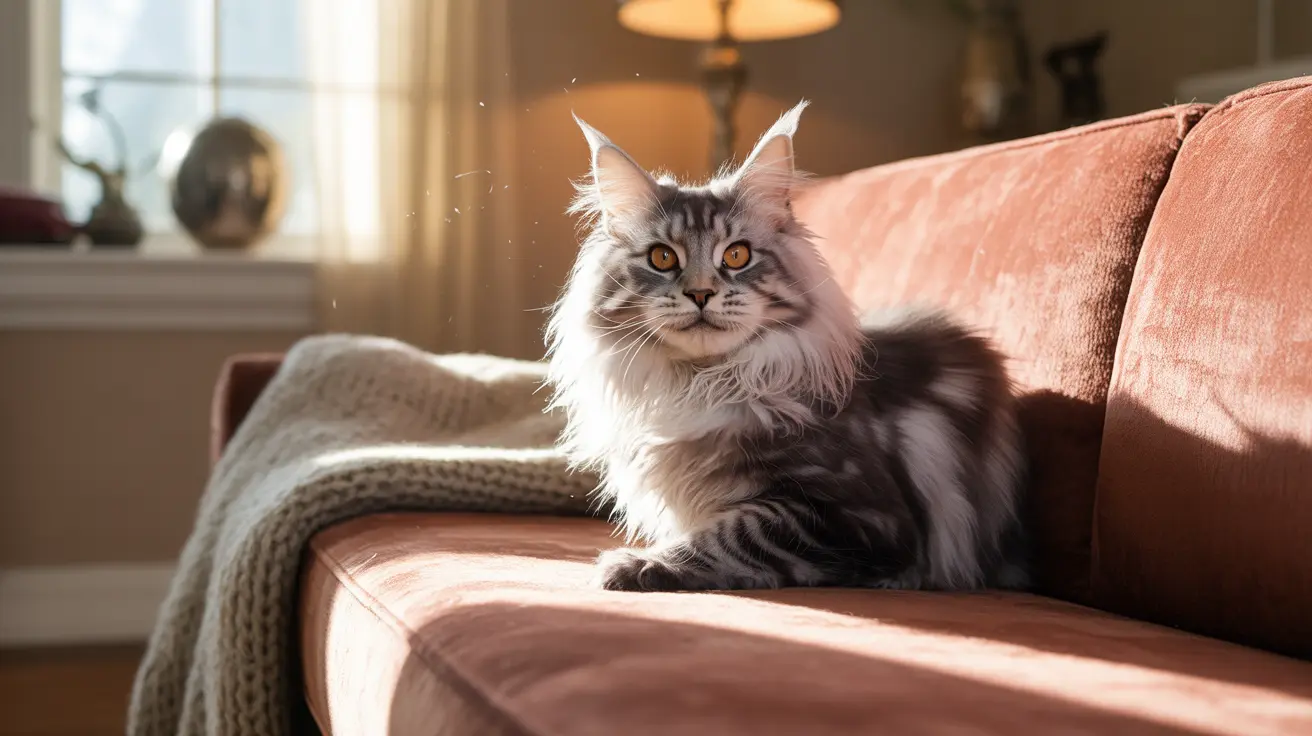The Hunter's Legacy: Why Cats Are Born Stalkers
Your domestic cat shares an impressive 95.6% of their DNA with tigers, and this wild heritage shows in their behavior. Despite thousands of years of domestication, cats retain their ancient hunting instincts, including the urge to stalk and pounce.
These behaviors aren't just remnants of their wild past – they're essential aspects of feline mental and physical well-being. Even well-fed house cats need to express these natural hunting behaviors to stay mentally stimulated and physically active.
Common Reasons Behind Your Cat's Stalking Behavior
Playful Engagement
Most often, when your cat stalks you, they're initiating play. This behavior is especially common in younger cats and those with high energy levels. Your movement triggers their prey drive, making you an irresistible target for their playful hunting practice.
Attention Seeking
Cats quickly learn that stalking behaviors get a reaction from their owners. Whether you jump, laugh, or engage in play, your response reinforces their behavior, making it a reliable way to get your attention.
Boredom and Understimulation
Indoor cats without adequate environmental enrichment may resort to stalking their owners as a form of entertainment. This behavior often increases when cats lack appropriate toys or regular play sessions.
Reading Your Cat's Body Language
Understanding whether your cat's stalking is playful or potentially problematic requires attention to their body language:
- Playful stalking usually involves:
- Relaxed ears pointing forward
- Slow, deliberate movements
- A wiggling bottom before pouncing
- Gentle pounces without aggressive biting or scratching
- Concerning stalking may include:
- Flattened ears
- Tail lashing
- Dilated pupils with tense body posture
- Aggressive vocalizations like growling or hissing
Managing Your Cat's Stalking Behavior
While stalking is natural, you can help channel it appropriately:
- Schedule regular play sessions with interactive toys
- Provide environmental enrichment like climbing trees and hiding spots
- Rotate toys to maintain interest
- Use puzzle feeders to simulate hunting
- Create safe spaces where your cat can observe their territory
Frequently Asked Questions
Why does my cat stalk me even when it's well-fed and not hungry?
Stalking is an instinctive behavior unrelated to hunger. Cats stalk for mental stimulation, exercise, and social bonding, regardless of their appetite.
How can I tell if my cat's stalking behavior is playful or a sign of stress?
Playful stalking involves relaxed body language and gentle pounces, while stress-related stalking may include aggressive vocalizations, tense posture, and actual attempts to bite or scratch.
What body language should I look for to understand why my cat is stalking me?
Watch for ear position, tail movement, pupil dilation, and overall body posture. Relaxed, forward-pointing ears and a gently swishing tail usually indicate playful intent.
How can I reduce my cat's stalking behavior through play and enrichment?
Provide regular interactive play sessions, rotate toys, create vertical spaces for climbing, and use puzzle feeders to satisfy their hunting instincts constructively.
Could my cat be stalking me because of anxiety or territorial aggression?
Yes, sometimes stalking can indicate anxiety or territorial behavior, especially if accompanied by aggressive body language or if there have been recent changes in the household. Consult a veterinarian if concerned.
The Bottom Line
Understanding why your cat stalks you helps maintain a healthy relationship with your feline friend. Remember that stalking is usually a sign of a mentally active, engaged cat seeking interaction. By providing appropriate outlets for this natural behavior, you can ensure your cat stays happy and well-adjusted while keeping their predatory instincts satisfied in safe, playful ways.






